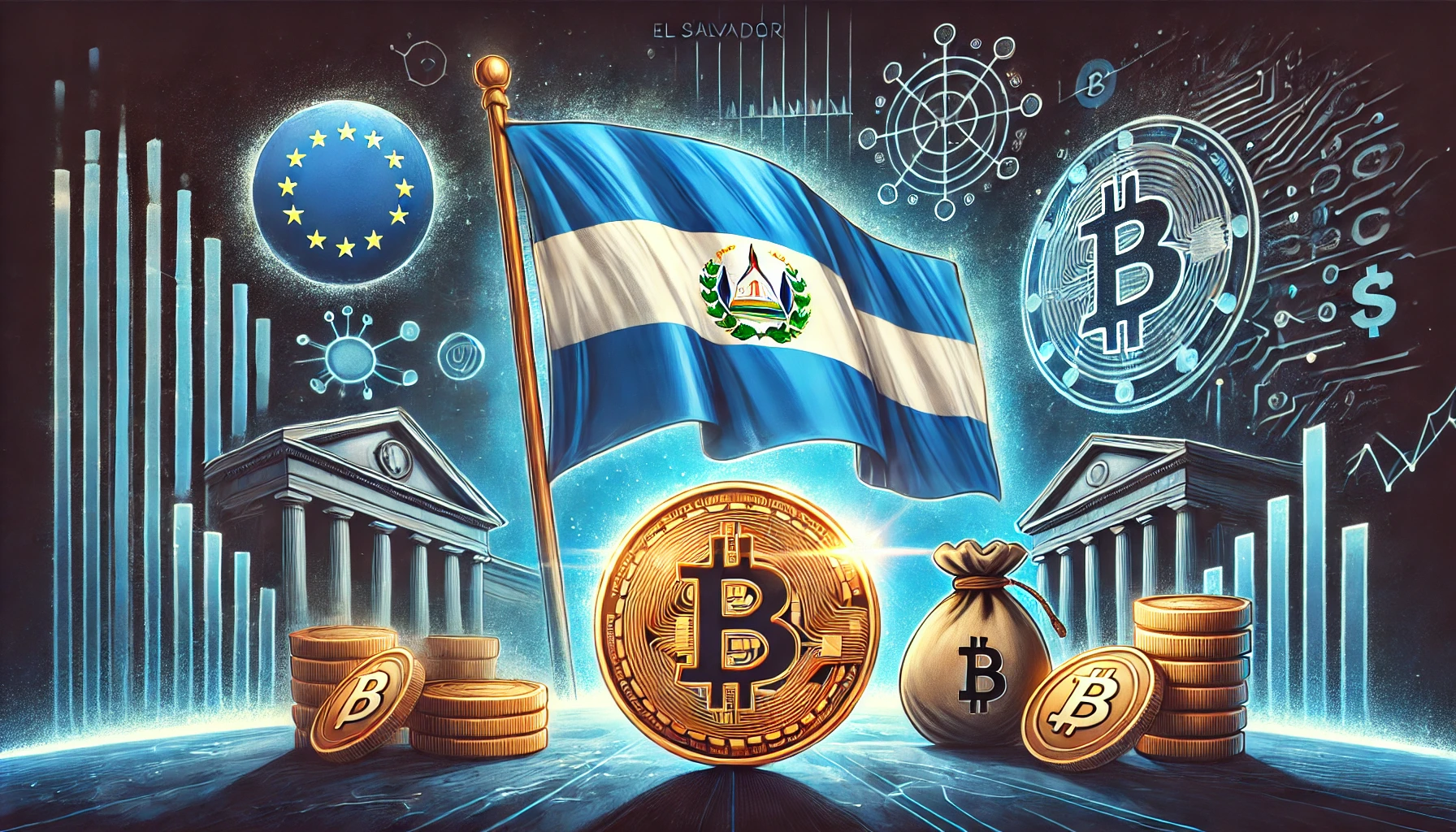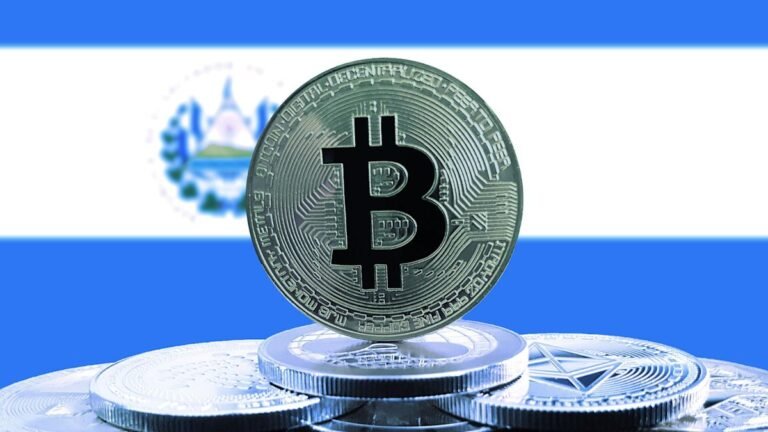El Salvador’s bitcoin holdings have reached a remarkable milestone of 6,332.18 BTC, solidifying the Central American nation’s position as one of the world’s most bitcoin-forward governments. This accumulation represents more than just numbers on a balance sheet—it embodies a revolutionary approach to national treasury management and monetary policy that has captured global attention. Since President Nayib Bukele announced Bitcoin as legal tender in 2021, the country has systematically built its digital asset reserves through strategic purchases and innovative mining operations. The current El Salvador bitcoin holdings, valued at approximately $400 million at current market prices, demonstrate the nation’s unwavering commitment to cryptocurrency adoption despite market volatility and international skepticism.
El Salvador’s Bitcoin Journey: From Legal Tender to Strategic Reserve
The Historic Bitcoin Law Implementation
El Salvador made history in September 2021 when it became the first country to adopt Bitcoin as legal tender alongside the US dollar. This groundbreaking decision laid the foundation for the current El Salvador Bitcoin Holdings accumulation strategy. President Bukele’s administration viewed Bitcoin not merely as an alternative payment method but as a hedge against inflation and a tool for financial inclusion.
The implementation faced initial challenges, including technical issues with the government’s digital wallet, “Chiv,o”, and public resistance. However, these hurdles didn’t deter the government’s long-term vision of building substantial bitcoin reserves that would eventually benefit the nation’s economy.
Strategic Bitcoin Acquisition Timeline
The accumulation of El Salvador’s bitcoin holdings didn’t happen overnight. The government employed a systematic approach, making regular purchases during market dips—a strategy often referred to as “buying the dip.” Key acquisition milestones include:
- September 2021: Initial purchase of 400 BTC before the legal tender law took effect
- October 2021: An Additional 420 BTC was purchased during the market correction
- January 2022: Continued accumulation with 410 BTC added to reserves
- May 2022: Strategic purchases during crypto market downturn
- 2023-2024: Consistent dollar-cost averaging approach leading to current holdings
This methodical approach to building El Salvador’s bitcoin holdings demonstrates sophisticated treasury management despite critics’ concerns about volatility risks.
Current State of El Salvador Bitcoin Holdings
Breaking Down the 6,332.18 BTC Portfolio
The current El Salvador bitcoin holdings, at 6,332.18 BTC, represent approximately 0.03% of Bitcoin’s total supply. This accumulation includes bitcoins acquired through:
- Direct government purchases: The majority of holdings come from strategic market acquisitions
- Bitcoin mining operations: Revenue from the country’s geothermal-powered mining facility
- Transaction fees: Small amounts from Bitcoin network activity within the country
- Chivo wallet conversions: Bitcoin obtained through the national digital wallet system
The diversified sources of bitcoin accumulation showcase El Salvador’s multi-faceted approach to building its digital asset reserves.
Geothermal Bitcoin Mining Operations
A significant contributor to El Salvador’s bitcoin holdings comes from the country’s innovative geothermal bitcoin mining operation. Located near the Tecapa volcano, this facility harnesses renewable geothermal energy to power Bitcoin mining equipment, making it one of the most environmentally sustainable mining operations globally.
The geothermal mining initiative serves dual purposes:
- Contributing to the growth of El Salvador’s bitcoin holdings
- Demonstrating commitment to sustainable cryptocurrency mining practices
This approach addresses environmental concerns about Bitcoin mining while generating additional revenue for the national treasury.
Economic Impact of El Salvador’s Bitcoin Strategy
Tourism and International Recognition
The bold El Salvador bitcoin holdings strategy has significantly boosted the country’s international profile, particularly in the cryptocurrency community. Bitcoin-focused tourism has emerged as a new economic sector, with crypto enthusiasts visiting to experience the world’s first Bitcoin nation firsthand.
Bitcoin Beach in El Zonte has become a pilgrimage site for cryptocurrency advocates, generating substantial tourism revenue. Hotels, restaurants, and local businesses that accept Bitcoin have reported an increase in patronage from international visitors intrigued by the country’s adoption of cryptocurrency.
Financial Inclusion and Remittances
El Salvador’s bitcoin holdings represent more than just government reserves—they symbolize a broader initiative for financial inclusion. The country receives approximately $6 billion annually in remittances, primarily from Salvadorans living in the United States. Bitcoin provides an alternative to traditional remittance services, potentially saving millions in transfer fees.
The Chivo wallet, launched alongside the Bitcoin legal tender law, offered initial incentives, including $30 in Bitcoin, to new users. This initiative aimed to onboard citizens into the digital economy while contributing to the country’s verall bitcoin aadoption
International Perspective on El Salvador Bitcoin Holdings
 IMF and World Bank Concerns
IMF and World Bank Concerns
International financial institutions have expressed reservations about El Salvador’s bitcoin holdings and the broader Bitcoin adoption strategy. The International Monetary Fund (IMF) has cited concerns about:
- Volatility risks: Bitcoin’s price fluctuations could impact government finances
- Regulatory challenges: Lack of a comprehensive cryptocurrency regulation framework
- Financial stability: Potential risks to the banking system and monetary policy
- Anti-money laundering: Concerns about illicit activity facilitation
Despite these concerns, El Salvador has maintained its commitment to expanding bitcoin reserves and defending its cryptocurrency strategy.
Global Cryptocurrency Community Support
The cryptocurrency community has primarily celebrated El Salvador’s bitcoin holdings as a validation of Bitcoin’s potential as a treasury asset. Notable figures in the crypto space have praised President Bukele’s vision and predicted that other nations would follow suit.
This support has translated into:
- Increased business investment from crypto companies
- Educational initiatives and conferences hosted in El Salvador
- Technical assistance for blockchain infrastructure development
- Growing international recognition as a cryptocurrency hub
Technical Infrastructure Supporting Bitcoin Holdings
Blockchain Infrastructure Development
Managing El Salvador’s bitcoin holdings requires a robust technical infrastructure. The government has invested in:
Secure custody solutions: Multi-signature wallets and hardware security modules protect the national Bitcoin treasury. Professional-grade custody solutions ensure that the bitcoin reserves remain secure against both digital threats and physical security risks.
Payment processing networks: The Chivo payment system processes thousands of Bitcoin transactions daily, supporting both government operations and citizen adoption. This infrastructure enables the practical application of Bitcoin throughout the economy while safeguarding El Salvador’s Bitcoin holdings.
Mining infrastructure: The geothermal mining facility requires sophisticated cooling systems, specialized mining equipment, and robust network connectivity. This infrastructure not only contributes to bitcoin accumulation but also strengthens the country’s position in the global Bitcoin network.
Regulatory Framework Evolution
The legal framework supporting El Salvador’s bitcoin holdings continues to evolve. The government has established:
- Bitcoin legal tender status: Constitutional protection for Bitcoin’s monetary role
- Tax incentives: Favorable treatment for Bitcoin-related businesses and investments
- Regulatory clarity: Clear guidelines for cryptocurrency exchanges and service providers
- Consumer protections: Safeguards for citizens using Bitcoin in daily transactions
This comprehensive regulatory approach provides stability for bitcoin reserves management while encouraging broader cryptocurrency adoption.
Future Projections and Strategic Goals
Long-term Accumulation Targets
President Bukele has indicated that El Salvador’s bitcoin holdings represent just the beginning of the country’s cryptocurrency strategy. Future goals include:
Continued accumulation: Regular Bitcoin purchases during market downturns to build larger Bitcoin reserves. The government aims to accumulate Bitcoin worth hundreds of millions of dollars over the coming years.
Mining expansion: Scaling the geothermal mining operation to contribute more significantly to El Salvador’s bitcoin holdings. Plans include additional mining facilities powered by renewable energy sources.
Bitcoin City development: The proposed Bitcoin City project would create a cryptocurrency-focused economic zone, potentially generating additional revenue from Bitcoin for the national treasury.
Economic Diversification Through Cryptocurrency
El Salvador’s bitcoin holdings form part of a broader economic diversification strategy. The country aims to:
- Attract international cryptocurrency businesses and investment
- Develop blockchain technology expertise and education programs
- Create new employment opportunities in the digital economy
- Establish El Salvador as a regional cryptocurrency hub
This diversification could reduce dependence on traditional economic sectors while positioning the country advantageously in the digital economy.
Volatility Impact Assessment
The volatile nature of Bitcoin presents both opportunities and challenges for El Salvador’s Bitcoin holdings. During bull markets, the value of bitcoin reserves can increase significantly, yielding substantial treasury gains. However, bear markets can lead to significant paper losses.
The government has adopted a long-term perspective, viewing short-term volatility as acceptable given Bitcoin’s historical appreciation over extended periods. This approach requires careful cash flow management to ensure Bitcoin price fluctuations don’t disrupt government operations.
Comparative Analysis with Other Nations
Emerging Government Bitcoin Adoption
While El Salvador’s bitcoin holdings remain unique in scale and commitment, other nations have shown interest in cryptocurrency adoption:
Central African Republic: Adopted Bitcoin as legal tender following El Salvador’s example, though implementation has been limited.
Switzerland: Various cantons have accepted Bitcoin for tax payments and developed cryptocurrency-friendly regulations.
Singapore: Established clear regulatory frameworks for cryptocurrency businesses and institutional adoption.
United States: Several states have proposed Bitcoin-friendly legislation, though federal adoption remains limited.
These developments suggest that El Salvador’s bitcoin holdings may represent the beginning of a broader trend toward government cryptocurrency adoption.
Corporate Bitcoin Treasury Adoption
The success of El Salvador’s bitcoin holdings has parallels in corporate treasury adoption of Bitcoin. Companies like MicroStrategy, Tesla, and Square have allocated significant portions of their treasuries to Bitcoin, validating the asset’s potential as a store of value.
These corporate precedents provide models for risk management and strategic rationale that support the logic behind bitcoin reserves accumulation at the national level.
Impact on Bitcoin Network and Global Markets
 Network Effect Contributions
Network Effect Contributions
El Salvador’s bitcoin holdings and widespread adoption contribute to Bitcoin’s network effects in several ways:
Transaction volume: Increased daily Bitcoin usage strengthens network security and utility, benefiting all Bitcoin holders globally.
Hash rate contribution: The geothermal mining operation adds to Bitcoin’s overall network security through increased computational power.
Legitimacy enhancement: Government adoption provides institutional validation, encouraging broader acceptance and investment in Bitcoin.
Infrastructure development: El Salvador’s Bitcoin infrastructure innovations can be replicated by other jurisdictions focused on adoption.
Market Impact Analysis
The accumulation of El Salvador’s Bitcoin holdings has had measurable impacts on Bitcoin markets:
- Reduced circulating supply through a long-term holding strategy
- Increased institutional confidence in Bitcoin’s viability
- Enhanced media attention and public awareness
- Demonstration of Bitcoin’s utility in developing economies
These effects contribute to Bitcoin’s overall value proposition and market dynamics, potentially benefiting all stakeholders in the Bitcoin ecosystem.
Challenges and Criticisms
Economic Policy Concerns
Critics of El Salvador’s bitcoin holdings raise several legitimate concerns:
Fiscal responsibility: Questions about using public funds for volatile asset purchases instead of traditional development projects.
Opportunity costs: Whether a a Bitcoin investment provides better returns than spending on infrastructure, education, or healthcare.
Economic expertise: Concerns about the government’s capability to manage sophisticated cryptocurrency treasury operations.
Democratic process: Limited public consultation on significant economic policy changes affecting all citizens.
Conclusion
El Salvador’s bitcoin holdings of 6,332.18 BTC represent a bold experiment in monetary policy and national treasury management. This accumulation strategy has positioned the country as a global leader in cryptocurrency adoption while generating significant international attention and debate.
The success of this strategy will ultimately be measured by its impact on El Salvador’s economic development, financial inclusion, and long-term prosperity. While critics raise valid concerns about volatility and risks, supporters point to Bitcoin’s potential as a hedge against inflation and a tool for economic modernization.
As El Salvador’s bitcoin holdings continue to grow through strategic purchases and mining operations, the world watches to see whether this pioneering approach will inspire broader government adoption of cryptocurrency or serve as a cautionary tale about the risks of embracing volatile digital assets.
For investors, policymakers, and cryptocurrency enthusiasts monitoring this historic experiment, El Salvador’s journey with bitcoin reserves offers valuable insights into the practical challenges and opportunities of integrating Bitcoin into national economic policy. The ultimate success or failure of El Salvador’s bitcoin holdings will likely influence cryptocurrency adoption decisions by governments worldwide for years to come.


